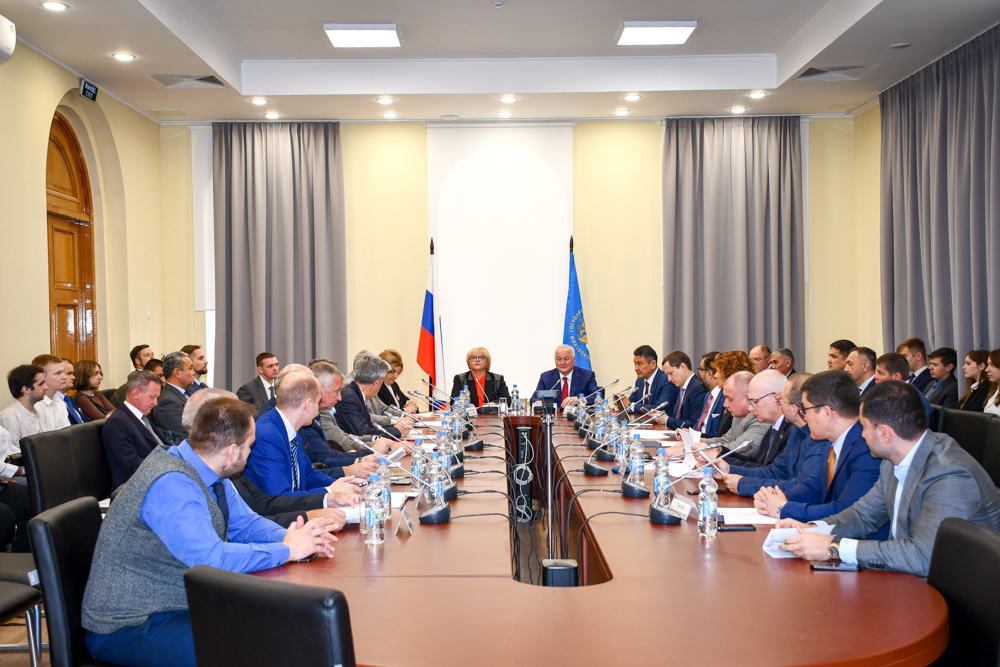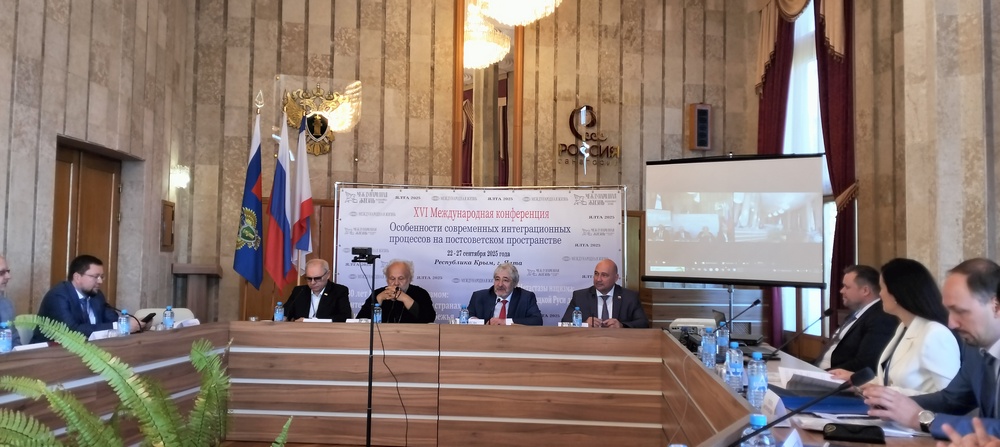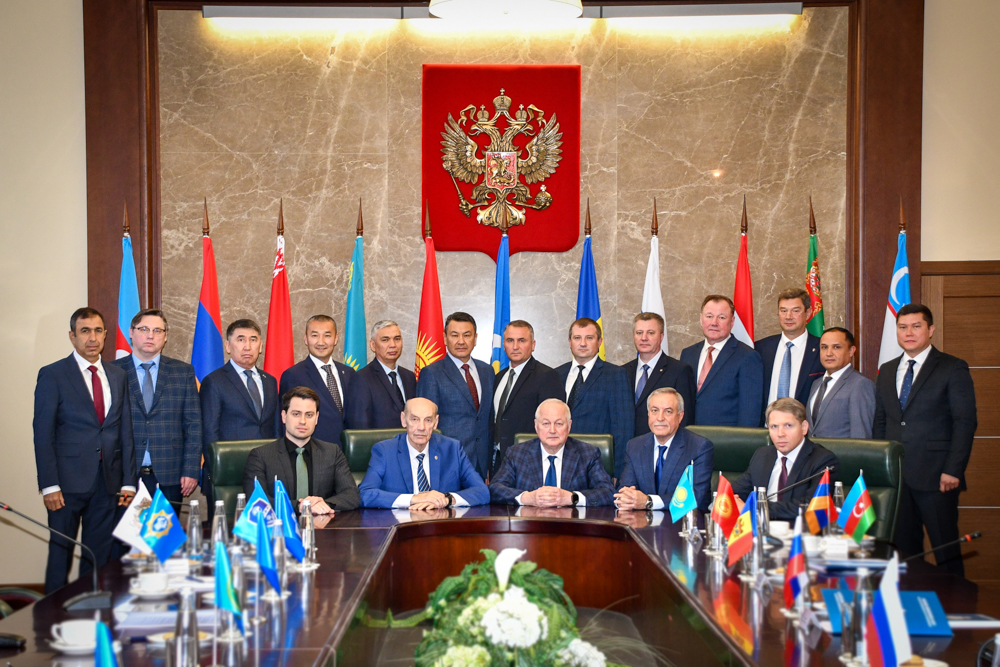October 5, 2017

The consultations organized by the CIS ATC with the support of the State Security Service of the Azerbaijan Republic brought together representatives of the Azerbaijan SSS, Belarus KGB, Kazakhstan NSC, Russian FSB, Uzbekistan NSS; CIS bodies including Executive Committee, Office for the Coordination of the Fight Against Organized Crime and Other Dangerous Types of Crime on the Territory of CIS member-states, Coordination Service of the Council of the Commanders of the Border Forces, Coordination Council of the Prosecutor Generals, Council of the Heads of Financial Intelligence Units, Council of the Heads of the CIS Penitentiary Services; representatives of academia and public organizations.
The main topics of discussions covered employment of remote brainwashing technologies by the international terrorist organizations for the purpose of recruitment of supporters among citizens of the CIS, specificity of social-psychological characteristics and regional affiliation of the most recruitable individuals targeted remotely by the international terrorist organizations, and main directions of cooperation between the competent authorities of the CIS member-states in organizing counteraction to the international terrorist organizations.
The participants noted a recently emerging rise of the level of the radical ideology propagation, increase in the number of hotbeds of incitement of religious discord in society, as well as a number of cases of extremist and terrorist crimes. It has been stated that specificity of the terrorist recruitment operations, including the remote one, is mainly dictated by social-economic and political factors as well as the level of religious education of the population.
The experts also discussed the best practices of the Commonwealth special services and law enforcement authorities in counter-narratives aimed at preventing citizens' recruitment by international terrorist organizations.
The expert consultations concluded with an Outcome document which offered specific proposals to reduce terrorist threats and develop agreed approaches to countering terrorism and other violent manifestations of extremism in the CIS area.




